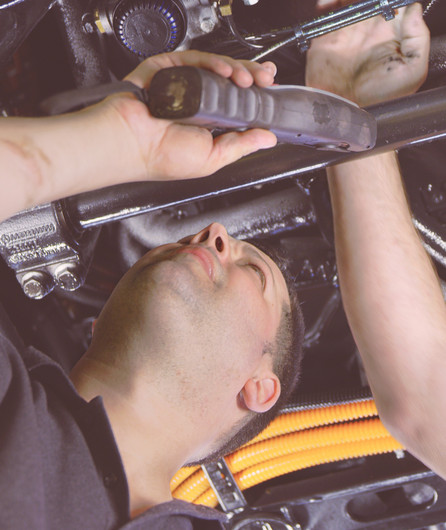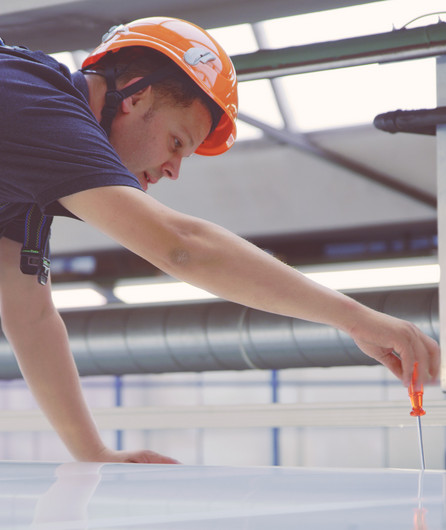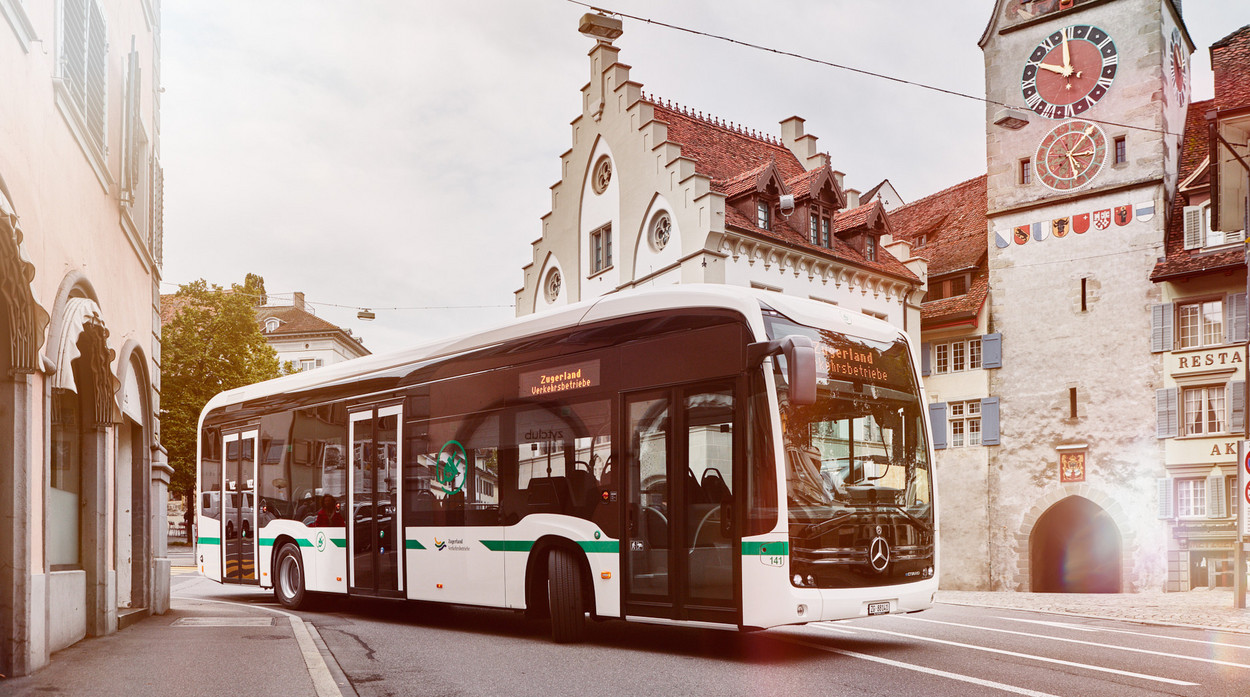This website uses cookies to ensure you get the best experience on our website. By using our website, you agree to our privacy policy and the use of cookies. Learn more.
Competence centre for electromobility
Since autumn 2019, the ZVB has had its first fully electric e-bus in its fleet - an eCitaro from Mercedes-Benz. It is also the first e-bus
first e-bus from this supplier in Switzerland.
The drive power of the e-bus is electricity, the tank is a battery. The ZVB has opted for the "depot charger" system. This means that the vehicles are charged in the bus depot and not en route, e.g. at a bus stop. A charging station is required for charging, similar to a petrol pump. The charging station for the e-bus is located on the ZVB premises. It has two plugs and can charge two vehicles at the same time. So there is potential. At full power, a charge takes around an hour. However, the electricity is then more expensive and the battery suffers. A slower charge makes more sense.
Unlike the diesel bus, the majority of the battery and power components are located on the roof. This means that the mechanics also spend more time on the vehicle roof for maintenance and repair work. This is why additional installations are needed to ensure work safety, safety belts and a type of work platform. A specially equipped mobile workstation has been set up in the workshop.
Maintaining an e-bus requires additional knowledge. The mechanics are specially trained for this. The tension is rising. In the truest sense of the word. E-buses are charged under high voltage (high-voltage). All mechanics were sensitised to the topic. A small group even travelled to the supplier EvoBus for training. The new e-bus with its peculiarities is also an issue for the transport service and the trainers in particular.




